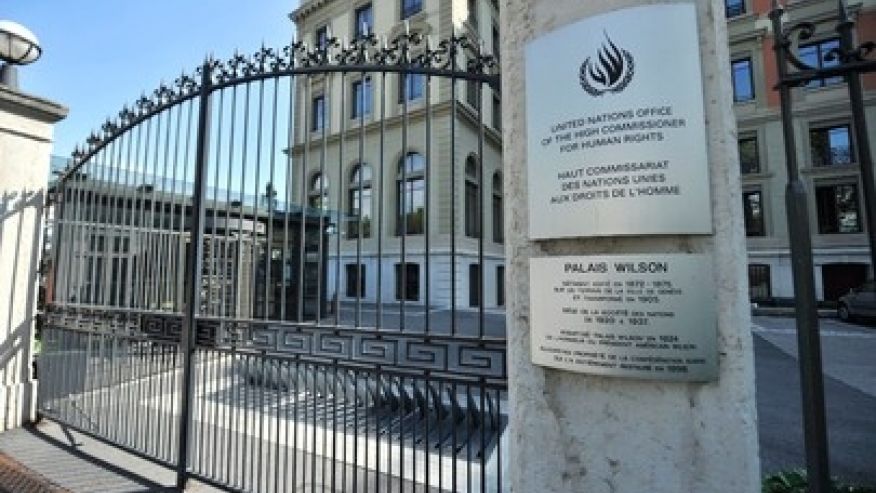UN children’s rights experts issue recommendations to seven countries on alternative care
The United Nations Committee on the Rights of the Child met for its 75th session between 15 May and 2 June 2017. The Committee, made up of 18 independent human rights experts from around the globe, reviewed the progress of seven countries from different parts of the world (Antigua and Barbuda, Bhutan, Cameroon, Lebanon, Mongolia, Qatar and Romania) in implementing the Convention on the Rights of the Child (CRC). The Committee’s concluding observations give us an important glimpse into current concerns about children living outside of parental care and how family-based support should be strengthened globally.

How does the Committee work?
The CRC is ratified by nearly all countries in the world, with the exception of the United States. Under the CRC, countries are required to submit regular reports (every 2 – 5 years) to the Committee on how the rights in the CRC are being implemented in their countries. The Committee analyses the reports, as well as information provided by civil society organisations, and meets with representatives from the various countries. At the end of each session, the Committee adopts what are known as “concluding observations”, noting the progress made by countries and providing recommendations about the work needed to uphold children’s rights.
Families at the core of the Committee’s recommendations
Every child has a right to family under the CRC. In its concluding observations, the Committee reaffirmed that family-based support should be facilitated by states wherever possible, including for children in single parent families (see observations on Qatar and Cameroon). Importantly, it recalled that financial and material poverty can never be the sole justification for separating a child from his or her parents, for placing a child in alternative care, or for preventing a child’s social integration (see observations on Romania, Cameroon, Lebanon).
The Committee expressed concern over the high number of children in Mongolia living in dormitories, monasteries and in informal care as a result of their parents’ migration, internally or externally. This makes children vulnerable to neglect, abuse and other violations of their rights. It also noted with concern that Mongolia has registered increasing numbers of child-headed households. The Committee recommended that Mongolia strengthen support offered to parents to enable them to care for their children, as well as to take measures to protect children deprived of parental care (see Mongolia).
Similarly, Cameroon was advised to ensure when implementing its new legislation that families living in poverty benefit from assistance to enable them to provide their children with a family environment.
While the Committee noted Romania’s competent authorities made the reform of the child care system a priority, it also noted the absence of adequate mechanisms allowing for early identification of children at risk and of early intervention services. The Committee also noted that this problem is further aggravated by the general belief that children are “better off” if separated from their families, resulting in unnecessary placement in alternative care (see Romania).
Alternative care: a last resort
Several of the countries up for review were called upon to establish and implement clear criteria for determining whether a child should be placed in alternative care (See Romania, Qatar, Lebanon, Mongolia) when it is impossible for them to remain with their families or in family-type care. Their placement in alternative care institutions should be periodically monitored (see Romania, Cameroon, Qatar). Staff in alternative care institutions should receive ongoing training on child abuse prevention (see Lebanon) and clear standards should be established and further monitored regarding the number and qualifications of staff working with children (see Mongolia). In calling on States to ensure “adequate human, technical and financial resources” to residential care centres, the UN experts recalled that the goal of such centres is to facilitate, as soon as possible, the rehabilitation and social reintegration of children (see Romania, Antigua & Barbuda, Cameroon).
The Committee also expressed the need for clear standards to be established and monitored concerning the quality of services provided to children in alternative care, as well as standards for the recruitment and retention of foster families (see Cameroon and Lebanon). Alternative care mechanisms should be complemented by government oversight, and accessible channels to report, monitor and remedy maltreatment of children must be put in place (see Lebanon).
Finally, and importantly, the Committee expressed that more support should be offered to children leaving care in order to enhance their rehabilitation and social reintegration (see Romania).
The recommendations of UN child rights experts underline and emphasise that the priority of states should be supporting children and families so that they can remain together. When separation is the only solution, the priority should be family-like care. Institutionalisation should be a temporary solution and its aim always the speedy rehabilitation and social reintegration of a child. This is, at its core, what Stahili advocates.